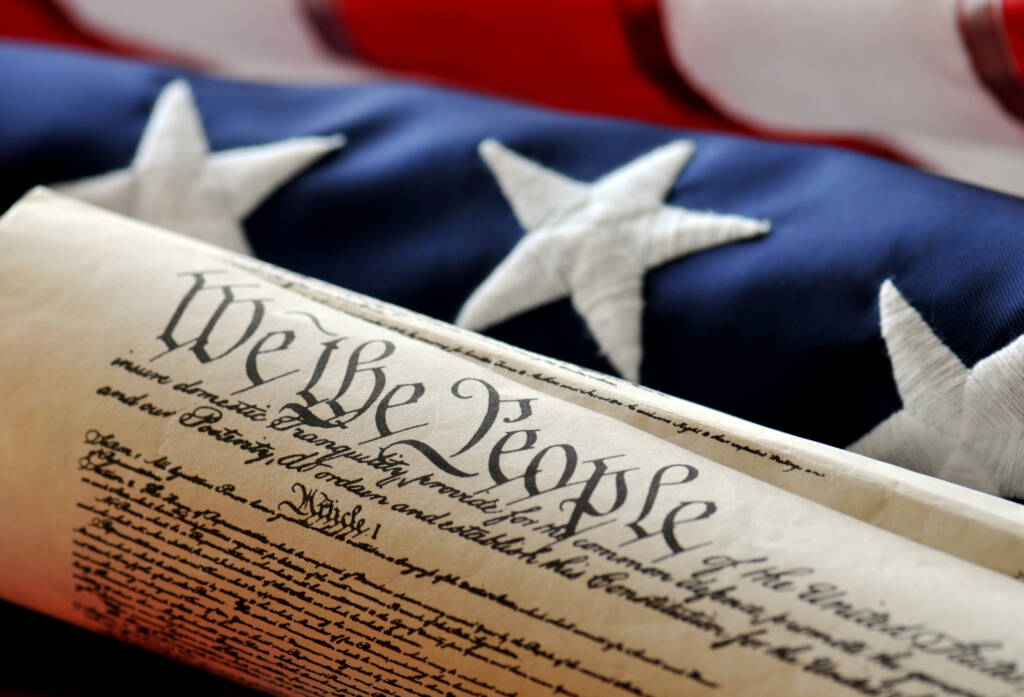
World History/World History Honors

World History is a broad survey of the most significant world events since 500 CE, a period of roughly 1,500 years.
Segment One focuses on the period 500 to 1500, which has been called the Middle Ages, between the end of the Roman Empire and the Modern Age. Review essential information about what made the Roman Empire so significant, as well as essential information about Judaism and Christianity as background to the rise of the third major monotheistic religion, Islam. Study the earliest civilizations of sub-Saharan Africa and the Americas, and then wrap up the segment with three simultaneous major events: the Age of Discovery, Protestant Reformation, and Scientific Revolution. The Middle Ages ended with a tornado of changes!
In Segment Two, focused on 1500 to present, you’ll learn about advancements in science and thought during the Age of Enlightenment, as well as the social and political revolutions that followed as a result. As you meander through the 19th century, you will learn about the transformation from an agricultural to an industrial world and the many changes that resulted from that shift. Then, learn about the interconnectedness of nationalism and colonialism and the two massive world wars that were the end result. As you explore the modern era, students learn about developments in today’s world and the implications that historical events have on each of us.
Major Topics and Concepts
Segment 1:
Module 01 – Medieval Eastern Europe, North Africa, and Middle East
- Roman Empire
- Byzantine Empire
- Monotheistic Religions
- Golden Age of Islam
Module 02 – Medieval Western Europe and East Asia
- Medieval Society and Arts
- The Crusades
- Medieval Japan
Module 03 – Medieval Sub-Saharan Africa and the Americas
- Rise of African Kingdoms and City-States
- Major Civilizations of Mesoamerica and the Andes
Module 04 – Age of Rebirth, Reformation, and Discovery
- Rise of the Italian City-States
- Renaissance
- Reformation and Counter-Reformation
- Age of Discovery
- Columbian Exchange
- Slavery
Segment Two:
Module 05 – The Enlightenment and Revolutions
- European Geography
- Constitutional and Absolute Monarchies
- Scientific Revolution
- 20th Century Science
- Enlightenment
- French Revolution
Module 06 – 19th Century Changes
- 19th Century Latin American and Caribbean Independence Movements
- Industrial Revolution
- Economic and Political Ideologies
- Imperialism
- Italian and German Unification
- Modern Reform Movements
Module 07 – The World at War and the Fires Between
- World War I
- Great Depression and Rise of Totalitarianism
- World War II
- Genocide
Module 08 – The Modern Era
- Cold War and Proxy Wars
- Decolonization and New Nationalism
- Collapse of the Soviet Union
- Globalization
- Terrorism
Competencies
Byzantine Empire
Students will demonstrate an understanding of the Byzantine Empire by comparing the ideals of the monotheistic religions, summarizing the impact of the Byzantine Empire at the height of the empire, and explaining achievements related to the Islamic Golden Age.
Medieval Sub-Saharan Africa and the Americas
Students will demonstrate an understanding of Medieval Sub-Saharan Africa and the Americas by analyzing the growth of major sub-Saharan African kingdoms and empires, explaining the contributions of early Mesoamerican and Andean cultures, and comparing the major civilizations of Meso and South America.
Medieval Western Europe and Japan
Students will demonstrate an understanding of medieval Western Europe and Japan by summarizing the medieval social hierarchy in Europe and Japan, explaining the role religion played in the established social and political order, and describing key achievements of the Middle Ages in Europe and Japan.
Postmedieval Ideas
Students will demonstrate an understanding of postmedieval ideas by explaining the effects of the Black Death, analyzing the cultural impact of the Renaissance, and summarizing the effects of the Age of Exploration.
Cause and Effects of the Enlightenment
Students will demonstrate an understanding of the Enlightenment by summarizing the cause and effects of the development of a constitutional monarchy in England, explaining the cause and effects of the Scientific Revolution, and analyzing the cause and effects of the Enlightenment.
Impact of 19th-Century Changes
Students will demonstrate an understanding of the impact of 19th-century changes by analyzing the impact of the Industrial Revolution, explaining the impact of imperialism, and summarizing the impact of 19th-century reform movements.
Modern Era and Globalism
Students will demonstrate an understanding of the Modern Era and globalism by explaining the impact of the Cold War, describing the causes and effects of 20th-century nationalist conflicts, and analyzing the pros and cons of globalization.
The World Wars
Students will demonstrate an understanding of the world wars by explaining the causes of the world wars, explaining the crime of genocide, and analyzing the ending of WWII.
Projects allow students to demonstrate competence and understanding of concepts and skills by completing a career-related task. For example, the assignment might be to create a mural, a package design, a speech, a film review, or a movie set – you name it! These creative projects are about applying your learning acquired through in-depth research to real-world career tasks.
Each competency will be addressed through a project that is based on a real-life career task. Here are the careers you will explore: Community Service Manager, Playwright, Communications Specialist, and Social Science Research Assistant.
Projects
Competencies
Byzantine Empire
Students will demonstrate an understanding of the Byzantine Empire by comparing the ideals of the monotheistic religions, summarizing the impact of the Byzantine Empire at the height of the empire, and explaining achievements related to the Islamic Golden Age.
Medieval Sub-Saharan Africa and the Americas
Students will demonstrate an understanding of Medieval Sub-Saharan Africa and the Americas by analyzing the growth of major sub-Saharan African kingdoms and empires, explaining the contributions of early Mesoamerican and Andean cultures, and comparing the major civilizations of Meso and South America.
Medieval Western Europe and Japan
Students will demonstrate an understanding of medieval Western Europe and Japan by summarizing the medieval social hierarchy in Europe and Japan, explaining the role religion played in the established social and political order, and describing key achievements of the Middle Ages in Europe and Japan.
Postmedieval Ideas
Students will demonstrate an understanding of postmedieval ideas by explaining the effects of the Black Death, analyzing the cultural impact of the Renaissance, and summarizing the effects of the Age of Exploration.
Cause and Effects of the Enlightenment
Students will demonstrate an understanding of the Enlightenment by summarizing the cause and effects of the development of a constitutional monarchy in England, explaining the cause and effects of the Scientific Revolution, and analyzing the cause and effects of the Enlightenment.
Impact of 19th-Century Changes
Students will demonstrate an understanding of the impact of 19th-century changes by analyzing the impact of the Industrial Revolution, explaining the impact of imperialism, and summarizing the impact of 19th-century reform movements.
Modern Era and Globalism
Students will demonstrate an understanding of the Modern Era and globalism by explaining the impact of the Cold War, describing the causes and effects of 20th-century nationalist conflicts, and analyzing the pros and cons of globalization.
The World Wars
Students will demonstrate an understanding of the world wars by explaining the causes of the world wars, explaining the crime of genocide, and analyzing the ending of WWII.
Experiences allow you to explore a career field you’re curious about while mastering competencies for school credit. Through career-focused experiential learning, you will develop and learn skills for application to tasks typically completed as part of a career rather than using traditional assessments like essays or tests. During your Experience, you’ll work with a professional in the field to support your learning whom we call an “outside expert.” You’ll earn a badge for your accomplishments to share on social media and higher education platforms, or with colleges, potential employers, peers, and colleagues to display your qualifications.
Here’s how experiences work:
- Each competency you work on is addressed through a separate deliverable predetermined by you and your instructor.
- Guided learning for each module consists of research and/or work with a professional in the field. Your instructor will coach you through this process.
- Each module culminates in a final demonstration of understanding, which includes a deliverable and a discussion-based assessment with your instructor.
Here’s an example:
Let’s say you’re curious about a career in healthcare. You decide you’d like to learn about this career area, make a professional connection, earn a badge, and meet competencies for your 9th-grade English requirement. While enrolled in English 1 Experiences, you conduct research to better understand language and structure in writing. Then you may work with an Occupational Therapist to help apply your writing skills to create an informational video about adaptive equipment for patients. The video aims to advise family members of patients regarding the use of accommodations and equipment to help patients perform daily tasks. Now you’ve earned the Language and Structure in Writing competency! This is just one example of the many ways Experiences can bridge competencies to careers.
Obtaining an Outside Expert: Prior to enrollment, please have an idea for an outside expert in mind or consult with our counseling department by emailing [email protected] for help in identifying one.
*A parent/guardian permission form and background check of the outside expert are both required to work with outside experts without parental supervision.
Competencies
Byzantine Empire
Students will demonstrate an understanding of the Byzantine Empire by comparing the ideals of the monotheistic religions, summarizing the impact of the Byzantine Empire at the height of the empire, and explaining achievements related to the Islamic Golden Age.
Medieval Sub-Saharan Africa and the Americas
Students will demonstrate an understanding of Medieval Sub-Saharan Africa and the Americas by analyzing the growth of major sub-Saharan African kingdoms and empires, explaining the contributions of early Mesoamerican and Andean cultures, and comparing the major civilizations of Meso and South America.
Medieval Western Europe and Japan
Students will demonstrate an understanding of medieval Western Europe and Japan by summarizing the medieval social hierarchy in Europe and Japan, explaining the role religion played in the established social and political order, and describing key achievements of the Middle Ages in Europe and Japan.
Postmedieval Ideas
Students will demonstrate an understanding of postmedieval ideas by explaining the effects of the Black Death, analyzing the cultural impact of the Renaissance, and summarizing the effects of the Age of Exploration.
Cause and Effects of the Enlightenment
Students will demonstrate an understanding of the Enlightenment by summarizing the cause and effects of the development of a constitutional monarchy in England, explaining the cause and effects of the Scientific Revolution, and analyzing the cause and effects of the Enlightenment.
Impact of 19th-Century Changes
Students will demonstrate an understanding of the impact of 19th-century changes by analyzing the impact of the Industrial Revolution, explaining the impact of imperialism, and summarizing the impact of 19th-century reform movements.
Modern Era and Globalism
Students will demonstrate an understanding of the Modern Era and globalism by explaining the impact of the Cold War, describing the causes and effects of 20th-century nationalist conflicts, and analyzing the pros and cons of globalization.
The World Wars
Students will demonstrate an understanding of the world wars by explaining the causes of the world wars, explaining the crime of genocide, and analyzing the ending of WWII.

